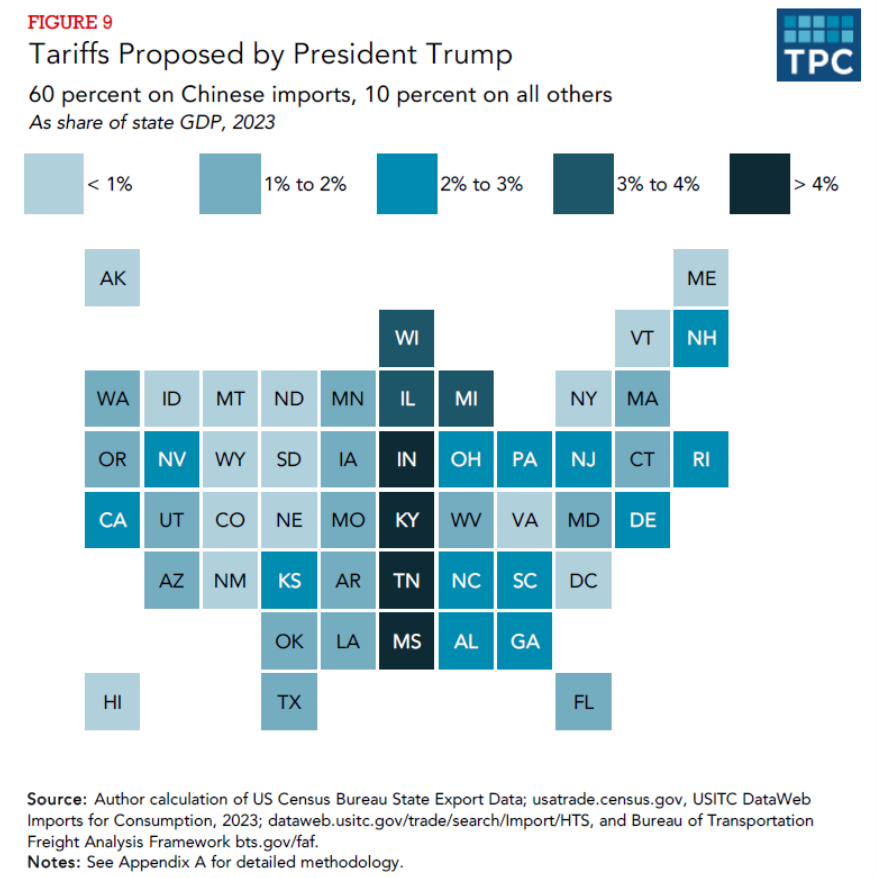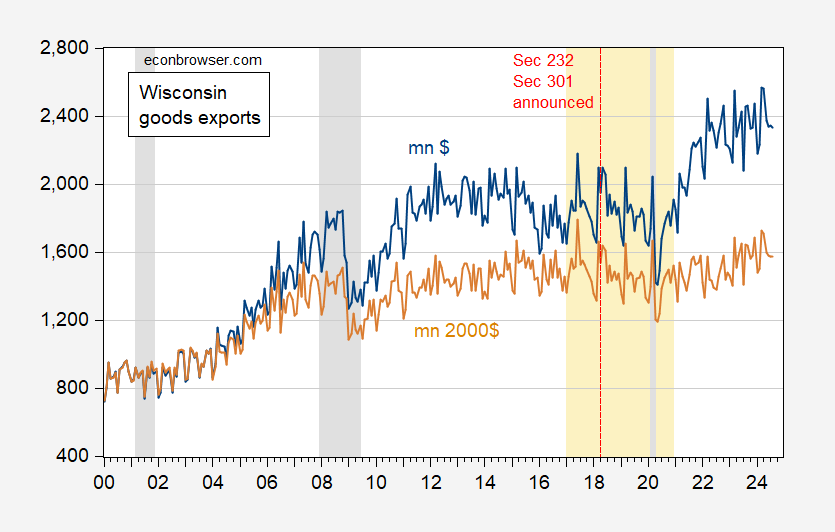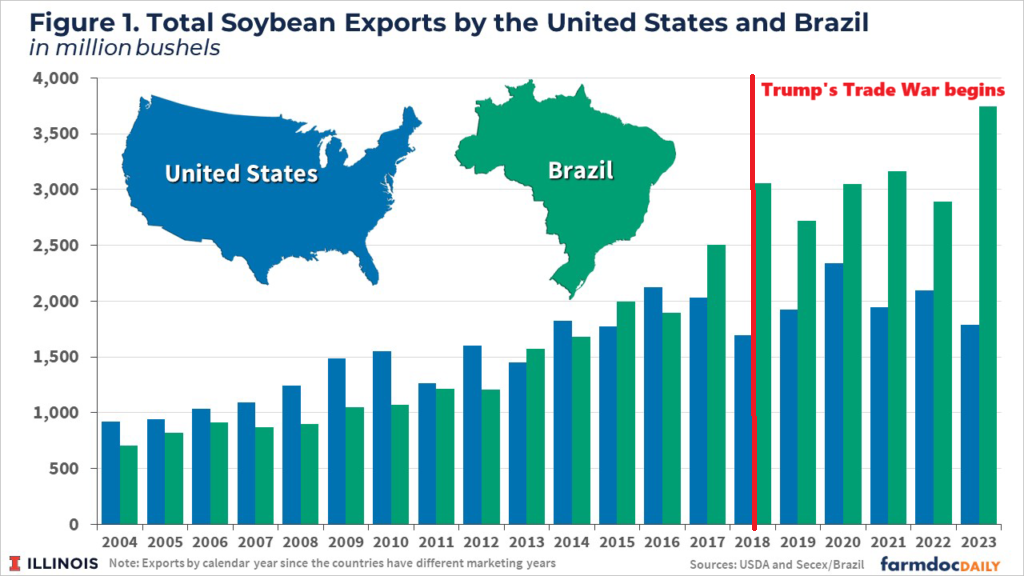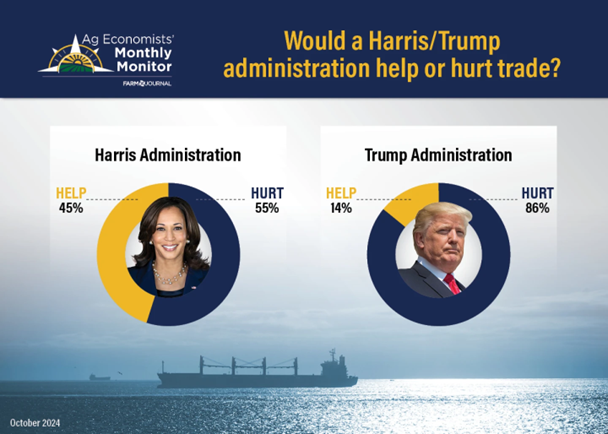Be ready. It doesn’t look good for Wisconsin (identical to Trump 1.0 didn’t however this time there isn’t $18 billion on faucet to bail out the soybean farmers).
Supply: McClelland et al. (2024).
These estimated impacts are for imports and may end in industry-specific employment will increase, however virtually definitely will trigger manufacturing-wide employment decreases as enter prices rise (recall, estimates are that the 2018 tariffs value on internet 175,000 manufacturing jobs). For nationwide macro impacts see this put up. What occurred final time Trump raised tariffs is that China (and different nations) retaliated. China retaliated by imposing tariffs on soybeans, and an entire vary of different manufactured and commodity items.
Determine 1: Wisconsin exports of products in tens of millions $ (blue), in tens of millions of 2000$ (tan), n.s.a. Wisconsin exports deflated by US export worth index, 2000=100. NBER outlined peak-to-trough recession dates shaded grey. Trump administration shaded orange. Purple dashed line at announcement of Part 232, 301 actions. Supply: Census, BLS through FRED, NBER, and writer’s calculations.
Actual exports from Wisconsin declined (manufactured and commodities) as retaliation took maintain.
As for soybeans, right here’s an image of the quantity of US soybean exports — basically Brazil stepped in.
Supply: Colusi, et al. (2024). Marking for commerce warfare in 2018 by writer.
Curiously, agricultural economists imagine that Trump insurance policies will harm the agricultural sector greater than Harris insurance policies (AgWeb farm journal), at a time when greater than half of agricultural economists imagine the ag financial system is in recession.
Supply: Agweb (Oct. 10, 2024).






















